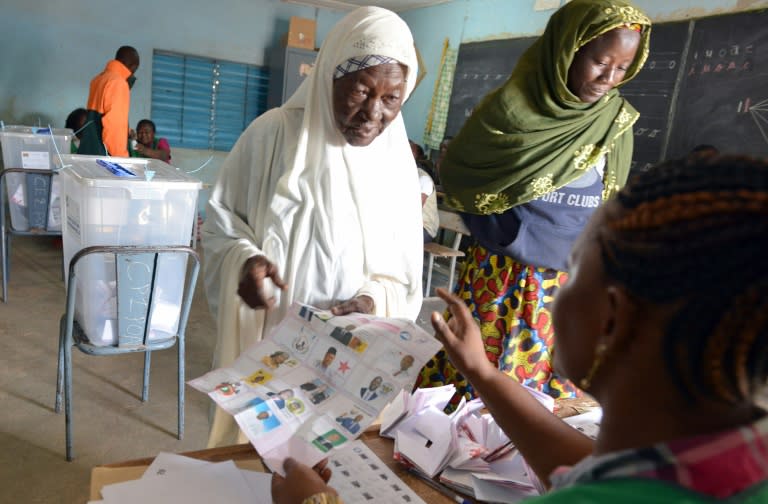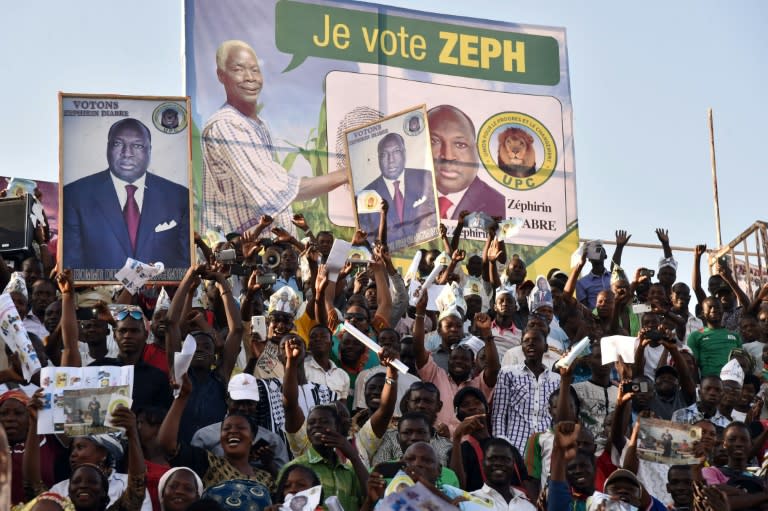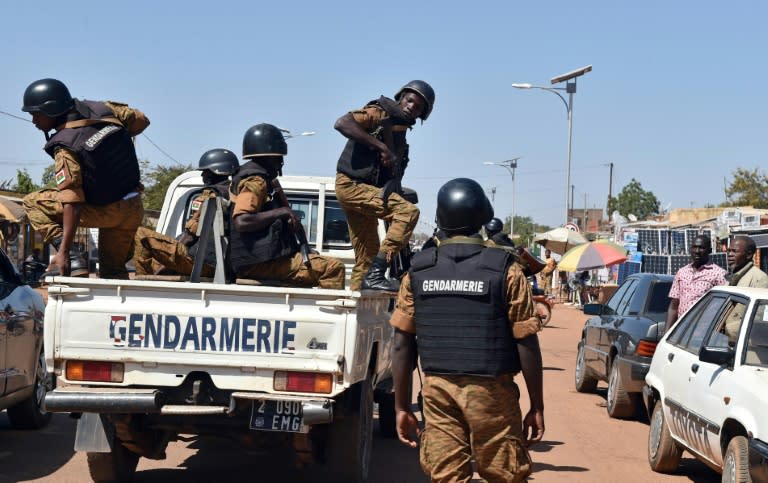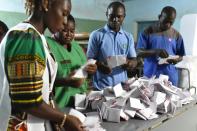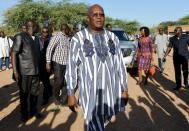Burkina votes for new president after year of upheaval
Voters in Burkina Faso went to the polls Sunday to choose a new president and parliament, hoping to turn the page on a year of turmoil during which the west African nation's people ousted a veteran ruler and repelled a military coup. Security was tight as some five million in the nation of 18 million cast their ballots for a new leader for the first time in almost three decades, though there were no reports of any disturbances. After the polls closed, the president of the Independent National Electoral Commission (CENI) Barthelemy Kere said the vote had been "generally satisfactory". Long queues had formed outside polling stations throughout the day, forcing some to stay open past 1800 GMT, and Kere praised voters' "patience, tolerance and understanding". The first results were expected early Monday, according to CENI. "For the first time in 50 years there is an electoral uncertainty... we don't know the winner in advance," said Abdoulaye Soma, the head of the Burkinabe society of constitutional law. Burkina's former president Blaise Compaore was forced to flee abroad following mass street protests in October 2014 against his bid to change the constitution to extend his 27-year rule. A transitional government was put in place until fresh elections could be held. But the country was plunged into fresh uncertainty in September this year, weeks before a planned October 11 presidential vote, when elite army leaders close to Compaore tried to seize power. Once again angry citizens took to the streets, foiling the military coup. Its leaders were thrown behind bars and the presidential and general elections were re-scheduled for November 29. There were problems Sunday as some stations opened late or were short of voting papers and ballot boxes, but many people said they were glad just to have the chance to choose their leader. "I'm happy to have been able to vote. I want the candidate I voted for to take care of us," said 39-year-old Omar Tiemtore. - 'Change, democracy and freedom' - Voter Ousmane Francois Ouedraogo said that with Compaore -- now exiled in neighbouring Ivory Coast -- gone, the country was "more free and more democratic". Former army officer Compaore, 64, took power in 1987 when his revolutionary comrade-in-arms Thomas Sankara -- a charismatic leader known as "Che Sankara" -- was gunned down in a coup the ex-president is now widely believed to have orchestrated. Transitional president Michel Kafando hailed the vote as a victory for the country and its young people, who "expressed themselves and expressed their desire for change, for democracy and freedom" by ousting Compaore. To bolster the legitimacy of the next head of state, members of the interim government were banned from standing as were all those who backed Compaore's bid for a third term, as well as members of his Congress for Democracy and Progress party (CDP). The pro-Compaore CDP still fielded candidates in the parliamentary elections and was expected to do well in parts of the country traditionally behind "Beau Blaise". In the race for the presidency, seven of the 14 contenders were once close to Compaore, including the two favourites for the job -- Roch Marc Christian Kabore and Zephirin Diabre. Diabre, an economist, opted for an international career but also served at home as minister of economy and finance. He at one point joined the United Nations Development Programme, with support from Compaore. Kabore worked side-by-side with Compaore for 26 years before falling out of favour and quitting the ruling party months before the collapse of the regime. Kabore was already crowing victory. "It's going to be a first-round knock-out," he predicted. "The priority is good governance, along with justice." One of the two women running for president, Saran Sere-Sereme, told AFP she had been unable to vote as her house was burgled a few days ago and her voting papers stolen.

 Yahoo Finance
Yahoo Finance 


